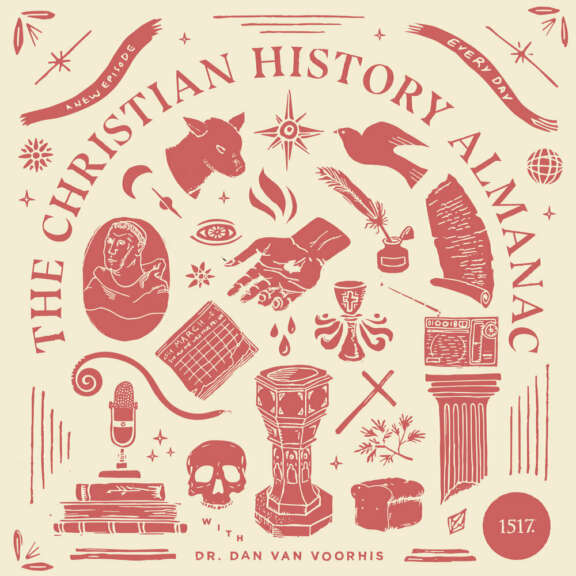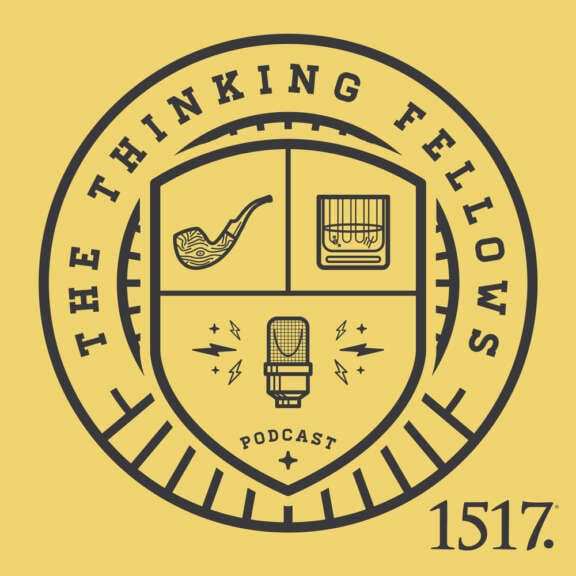On this day, we remember Antoine Augustin Calmet, b. 1672, and Johnny Cash, b. 1932. The reading is a poem from Richard Crashaw, "Two Went Up To the Temple to Pray."
Podcasts
Each 1517 Podcast is dedicated to delivering Christ-centered content through weekly, monthly, and seasonal audio platforms. Listen online or on your favorite podcasting app.
Author
- All Authors
- Aaron Zimmerman
- Adam Francisco
- Amy Mantravadi
- Blake Flattley
- Bob Hiller
- Bradley Gray
- Brian W. Thomas
- Bror Erickson
- Bruce Hillman
- Caleb Keith
- Chad Bird
- Chris Rosebrough
- Christopher Gillespie
- Cindy Koch
- Craig Donofrio
- Dan van Voorhis
- Daniel Deen
- Daniel Emery Price
- Darrin Sheek
- David Andersen
- David Rufner
- David Zahl
- Debi Winrich
- Delwyn Campbell
- Donavon Riley
- Doug Klembara
- Edward Killian
- Elyse Fitzpatrick
- Erick Sorensen
- Flame
- Grant Klembara
- Gretchen Ronnevik
- Haroldo Camacho
- Jacob Smith
- Jared C. Wilson
- Jeff Mallinson
- Jeffrey Pulse
- Jessica Thompson
- Jim Nestingen
- Joel Fitzpatrick
- Joel Hess
- John Andrew Schreiner
- John Bombaro
- John T. Pless
- John W. Hoyum
- John Warwick Montgomery
- Katie Koplin
- Kelsi Klembara
- Ken Sundet Jones
- Magnus Persson
- Matt Popovits
- Michael Berg
- Michael Horton
- Nick Lannon
- Paul Koch
- Peter Nafzger
- Philip Bartelt
- Raleigh Sadler
- RJ Grunewald
- Robert Kolb
- Rod Rosenbladt
- Ron Hodel
- Sam Leanza Ortiz
- Sarah Condon
- Sarah Crowder
- Scott Davis
- Scott Keith
- Steven Paulson
- Tanner Olson
- Troy Neujahr
- Uwe Siemon-Netto
- Wade Johnston
- William Cwirla
-
On this day, we recognize the feast of St. Matthias and remember Oscar Cullman, born in 1902. The reading is from Francis Thompson, "Love and the Child."
-
On this day, we remember two Holy Roman Emperors: Charles V, born in 1500, and Matthias, born in 1612. The reading is by Samuel Wesley, "The Sun of Righteousness Appears."
-
On this day, we remember Polycarp, who died around 155 AD, and Gutenberg's Bible, printed in 1455. The reading is from Augustine, "Late Have I loved You."
-
On this day, we remember Johannes Reuchlin, b. 1455, and Nicholas Ferrar, b. 1592. The reading is from George Herbert, "The Holdfast."
-
You’re not making Christianity better; you’re making Stoicism worse. Gillespie and Riley continue their discussion of free will and predestination by reading Clement of Alexandria. Where does the doctrine of free will originate? What happens when a Christian blends biblical theology and philosophy? Why doesn’t Riley like Star Wars sermons?
-
On this day, we remember Peter Damian, b. 1007, and Robert Southwell, d. 1595. The reading is "Christ's Childhood" by Robert Southwell.
-
On this day, we remember John Williamson Nevin, b. 1803, and St. Leo of Catania, d. 789. The reading is from Malcolm Guite, "Our Burning World."
-
On this day, we remember how Empress Theodora restored the icons of Hagia Sophia in 842. We remember Melchior Klesl, b. 1552. The reading is a quote Jacques Ellul, "Holy Troublemakers."
-
I thought we had something, but then you do and pull this. Gillespie and Riley read and discuss Iranaeus on free will and predestination. What part do Christians play in their salvation? Do we choose to sin? Who goes to hell?
-
The episode ends with a conversation about how vocation and the service of neighbor works toward apologetics.
-
On this day Germantown Quaker petition against slavery was published in 1688. And it is the birthday of Nikos Kazantzakis, b. 1883. The reading is from Francis Daniel Pastorius, his "Epitaph."


